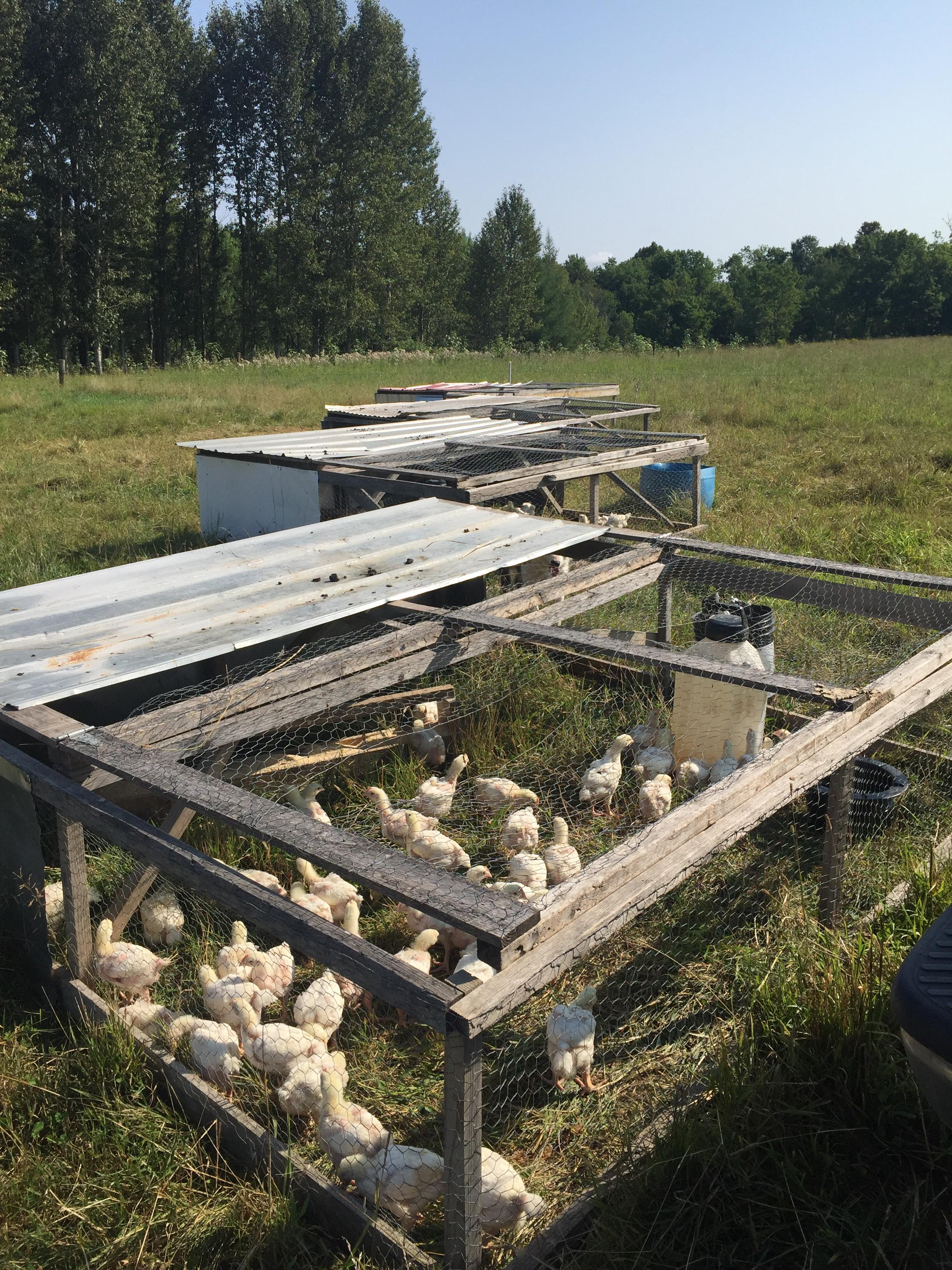Housing for Pasture Raised Chickens
Housing chickens on pasture in Minnesota’s Northwoods can be challenging at times. There is no shortage of predators, from weasels to wolves as well as hawks and eagles. We are also subjected to some pretty harsh elements.
To keep the poultry safe, happy, and healthy while free-ranging, we use structures called “chicken tractors”.
Why “Chicken Tractor”?
At first this seems to be a strange name but after some thought it makes perfect sense. I’ll first describe the basic concept of these shelters.
There are many different designs but the idea is the same-lightweight, sturdy, floor-less, and portable. Typically, half is a roofed and sided shelter and half is open air with a netted surrounding. This gives protection from rain, wind, and heat while allowing access to plenty of fresh air and sunshine. By not having a floor chickens are able to peck, scratch and forage for a large amount of their diet, something confined birds grown commercially are never able to do.
How does the “tractor” part enter the equation? As the pens are moved daily across a pasture, the work of modern farm equipment is being performed with nothing more than the effort of dragging the pen a few feet. Once located into fresh grass the chickens get to work, and they love their job! It is very satisfying to watch them in their natural environment, harvesting the grass, weeding, tilling, de-bugging, and fertilizing the ground.
Protection for Pasture Raised Chickens
We like to call our system of flock stewardship, protected free-range chicken. Predators are opportunists, they will always go for the easy meal. The pens create enough of a barrier that the carnivores look elsewhere for dinner and leave the chickens alone.
Environmental Benefits of Pasture Raised Chickens
The true beauty in this is creating positive effects on the landscape. Each location of the chicken tractor bestows upon the pasture the proper amount of nutrients and soil aeration. The regrowth is incredible, providing grazing for the grass fed beef that soon follow.
Often times a “free range” chicken grower will designate one spot for the entire season. The flaw in this is that all grass will be consumed and never give a chance to regrow, leaving a compacted dirt lot. Manure will build up and cause a disease and pollution risk.
The chicken tractor is a little more effort but I feel it is well worth the land, animal, and human health benefits.


Leave a Reply